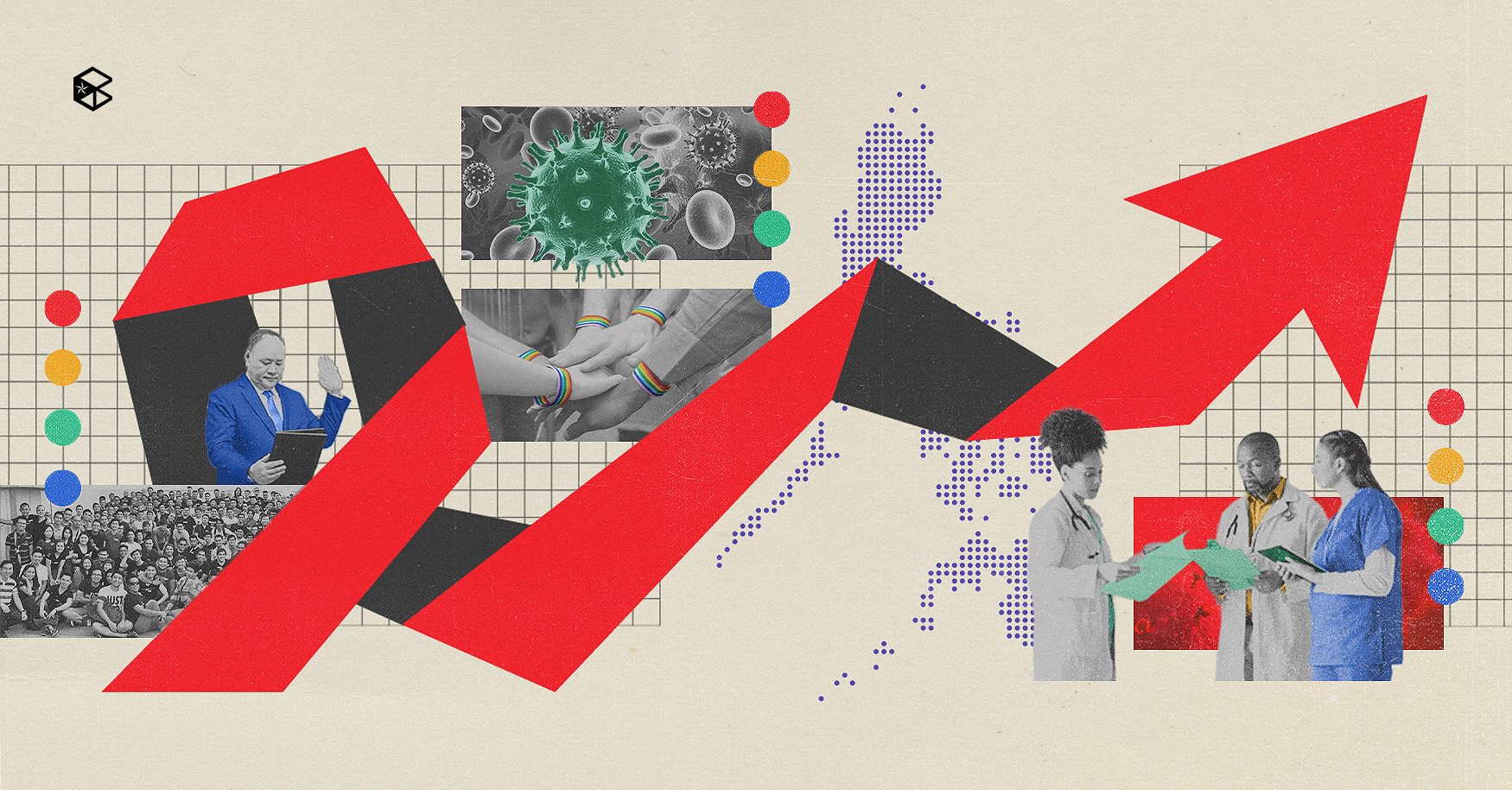The Department of Health (DOH) necessitated a declaration of a national public health emergency after noting an alarming 500% rise in the human immunodeficiency virus (HIV) among the Filipino youth ages 15 to 25 years old. Against the backdrop of national Pride celebrations, this creates both challenges and opportunities for advancing inclusive health education and healthcare for all communities.
A record-high average of 57 new HIV cases daily indicated a 50% increase from the previous year and a whopping 543% increase in new HIV infections between the years 2010 to 2023, based on the Joint United Nations Programme on HIV/AIDS (UNAIDS) report. Health Secretary Dr. Teodoro Herbosa emphasized the gravity of the situation.
"We now have the highest number of new cases here in the Western Pacific [region]. What is frightening is, our youth make up many of the new cases," he said in a Malacañang Press Conference.
The youngest reported case is a 12-year-old boy from Palawan, showing the pervasiveness of the epidemic across age groups.
Although the country has a low general prevalence rate of 189,900 individuals with HIV reported in recent times, estimations indicate that this could increase to 448,000 by 2030 if the trend persists.
Addressing stigma and vulnerable populations
The concentration of cases among men who have sex with men, accounting for 89% of new infections among the youth, requires careful examination of healthcare accessibility and social barriers. In an interview with DW News, Dr. Jeremy Jordan Castro, medical officer of the Klinika Eastwood HIV testing center, advocates for a normalized approach to sexual health services.
"We want to normalize HIV and STI testing as part of regular health care. With advancements in medication and technology, HIV is now manageable like other chronic conditions such as hypertension or diabetes."
Meanwhile, HIV activist and community organizer Kael Mata highlighted systemic barriers that prevent effective prevention efforts. "Sa buong Pilipinas, total number of HIV cases among youth ay 33%. If they go to a health center [and] they ask, ‘Pwede makahingi ng condom?’ Ang sagot sa kanila [ay] ‘Saan mo gagamitin? Bakit mo kailangan?’” he shared in an interview with 24 Oras on June 3.
The stigma surrounding HIV testing and treatment creates additional obstacles for vulnerable populations. Current data indicates that only 55% of those living with HIV in the Philippines have been diagnosed, while just 66% of those diagnosed receive life-saving antiretroviral therapy (ART).
These wide gaps within healthcare call for more accessible, judgment-free services that serve all individuals regardless of sexual orientation or gender identity. #PrideMonth's focus on dignity, equality, and access to healthcare aligns with public health objectives of decreased transmission through education, not discrimination.
Prevention strategies and healthcare response
DOH has implemented multiple strategies to address the epidemic, including the expansion of testing facilities and treatment hubs. Secretary Herbosa stressed the importance of widespread testing availability, "We already have self-test kits for HIV that are available in drugstores. Later on, we can just do confirmatory tests." As of March 2025, the government provides free HIV testing and anti-retroviral (ARV) drugs through 299 DOH-accredited treatment hubs nationwide.
The LoveYourself Inc. organization was at the forefront of bringing Pre-exposure Prophylaxis (PrEP), a medication that prevents HIV infection, to the Philippines through its #PrEPPilipinas Program. Co-primary investigator Christopher M. Lagman stated, "PrEP shouldn't be used as a replacement to current prevention mechanisms, but as an alternative and added layer of protection to avoid getting infected with HIV," he stressed.
This integrative strategy involves ongoing check-ups, advice, education and drug treatment. Prevention per se, however, has implementation issues. Mata underscored that the pronouncement of a national emergency would push local government units to come up with holistic programs.
"Kung ito ay ma-declare as national emergency, mao-obliga ang mga LGU na gumawa ng mas komprehensibong programa," he added. The DOH advises combination prevention interventions such as regular condom use, regular HIV testing, and PrEP for at-risk populations.
Post-exposure prophylaxis (PEP) can also be provided for people within 72 hours of potential exposure. All such evidence-based interventions, if applied non-discriminatorily, can drastically lower the rate of transmission among all groups.
Breaking barriers
The HIV epidemic requires a science, compassion, and human dignity-based response. #PrideMonth reminds us that effective public health practice needs to focus more on education and awareness than on stigmatization. HIV can be controlled and prevented through treatments. According to Sec. Herbosa, persons living with HIV can consult regularly and consistently receive free maintenance ARV drugs.
“HIV no longer has to be a death sentence since with proper testing and maintenance medication, it could be managed like chronic conditions such as hypertension or diabetes,” he emphasized in a Malacañang press briefing on June 5.
The path forward requires sustained commitment to comprehensive sexual health education, accessible testing and treatment services, and elimination of barriers that prevent individuals from seeking care. Fostering environments where everyone can access healthcare without fear of judgment can protect the health of all Filipinos.
The fight against HIV succeeds not through exclusion but through inclusive approaches that recognize healthcare as a fundamental right for every person, regardless of sexual orientation, gender identity, or other characteristics.
As we honor the LGBTQIA+ community, the message remains clear that education saves lives.


